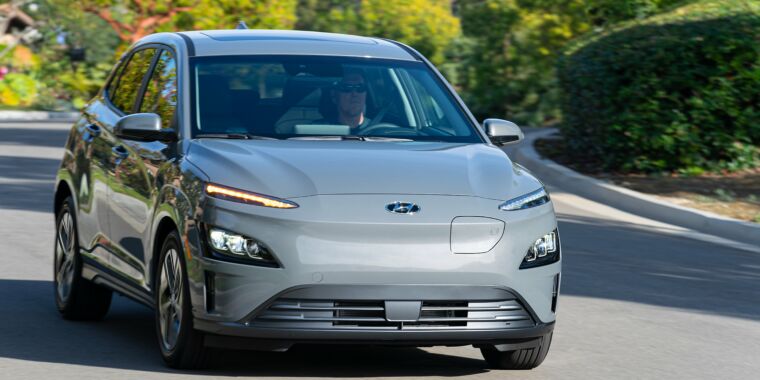
Hyundai will recall 82,000 Kona EVs to replace batteries
South Korea's transport ministry blames LG Chem, LG Chem blames Hyundai.
Hyundai and LG chem pointing fingers,
In the meantime you shouldn't charge your car beyond 90%.....

And these recalled batteries will all be sent to the dump.... long live the EV scam...
The tesla pack in an incredible piece of series parallel /engineering that can mask or minimize cell damage can failure like few others.
LG batteries dont seem to be the problem in and of themselves.
Apparently Hyundais issues is with the charging profiles, LG claims they went off the reservation from their spec.
Telsa simply has more experience with this challenge than anyone, and it will be interesting to compare how everyones pack ages.
They didn’t, the transport ministry did. it clearly says Hyundai chose not to comment.Telling how Hyundai took the unprofessional approach of blaming the supplier.
Okay, I see I was wrong. Korean Transport Ministry should not be so outspoken IMO.They didn’t, the transport ministry did. it clearly says Hyundai chose not to comment.
Lithium ion batteries are dangerous, it will be good when they are in the past, the way they are made now.
General Motors is notifying owners of select 2017-2019 model year Chevrolet Bolt EVs that it has developed a remedy to complete the previously announced safety recall.
As part of the service procedure, dealers will utilize GM-developed diagnostic tools to identify potential battery anomalies and replace battery module assemblies as necessary. The remedy will also include the installation of advanced onboard diagnostic software into these vehicles that, among other things, has the ability to detect potential issues related to changes in battery module performance before problems can develop.
Unlikely. If anything they will be send back to the engineering dept for research and R&D. You don't throw them away just because you cannot charge past 90%.And these recalled batteries will all be sent to the dump.... long live the EV scam...
It takes a lot of battery power to power a vehicle.And these recalled batteries will all be sent to the dump.... long live the EV scam...
Welcome to 2021. Everything is now "microprocessor controlled" and "software defined". People cannot afford to ship products without software controlling and fixing last minute unfixable problems and they cannot guarantee things to be perfect these days. Most products in the future and now are shipped with some "spares" and "defects" that when discovered and worn, internally replaced and hidden from you.At first glance I'm not sure I'd be happy relying on software essentially allowing for the continued presence of a defect, but I'll leave the editorialising to Bolt owners.
